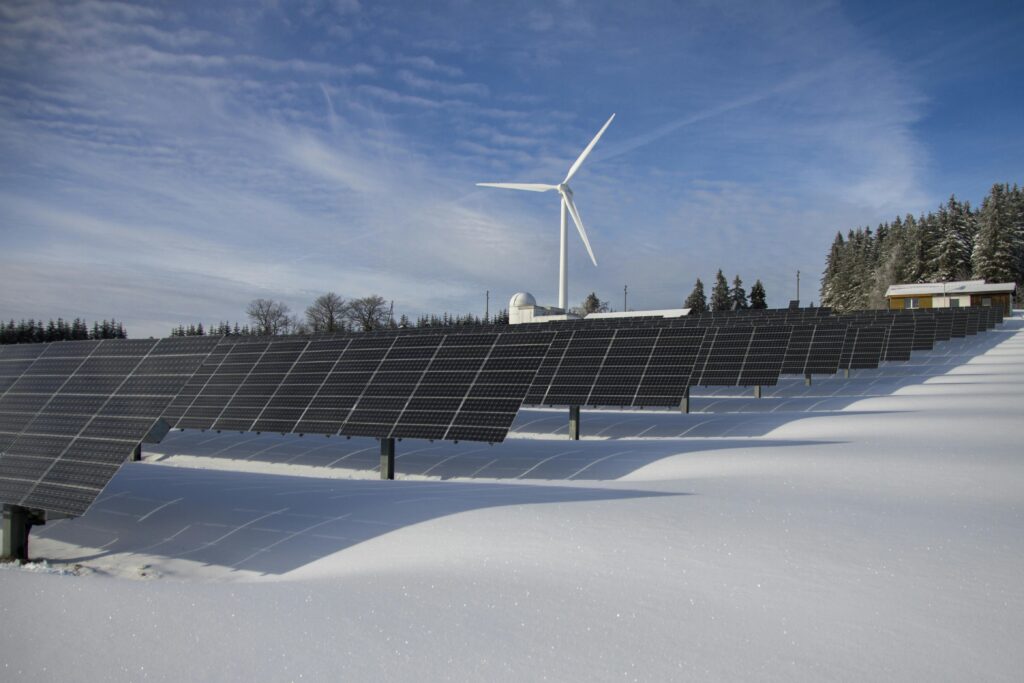Heading: Embracing Renewable Energy: A Sustainable Solution for a Greener Future
In an era increasingly defined by environmental consciousness and the urgent need for sustainable development, renewable energy stands as a beacon of hope. This burgeoning sector not only promises to mitigate the adverse effects of climate change but also presents a viable pathway towards energy independence and economic resilience. As nations around the globe grapple with the challenges posed by finite fossil fuel reserves and the environmental toll of their extraction and consumption, the imperative to embrace renewable energy solutions has never been clearer.
Harnessing Nature’s Abundance

Renewable energy derives from naturally replenishing sources such as sunlight, wind, rain, tides, and geothermal heat. Unlike fossil fuels, which are finite and non-renewable, these sources offer an infinite supply of energy that can be harnessed without depleting natural resources or significantly harming the environment. Solar power, for instance, harnesses the sun’s energy through photovoltaic cells, while wind turbines convert kinetic energy from wind into electricity. Hydroelectric plants utilize the power of flowing water, and geothermal systems tap into the Earth’s heat to generate electricity or heat buildings.
Environmental Benefits
One of the most compelling reasons to transition to renewable energy is its minimal environmental impact compared to conventional energy sources. Burning fossil fuels releases greenhouse gases like carbon dioxide, methane, and nitrous oxide, which contribute significantly to global warming and air pollution. In contrast, renewable energy sources produce little to no greenhouse gas emissions during operation, thus helping to mitigate climate change and improve air quality. Moreover, renewable energy technologies have a lower environmental footprint in terms of land and water use, reducing habitat destruction and preserving ecosystems.
Economic Advantages
Beyond environmental stewardship, renewable energy offers substantial economic benefits. Investing in renewable energy infrastructure stimulates job creation across various sectors, from manufacturing and construction to research and development. The renewable energy industry has the potential to spur innovation and economic growth, driving down costs through technological advancements and economies of scale. Moreover, unlike fossil fuels, which are subject to price volatility and geopolitical tensions, renewable energy sources offer stable and predictable energy costs over the long term, enhancing energy security and resilience.
Global Implications and Challenges

While the benefits of renewable energy are undeniable, widespread adoption still faces challenges. Initial investment costs for infrastructure development and technology deployment can be high, although declining costs and government incentives are making renewable energy increasingly cost-competitive. Additionally, intermittency—variations in energy production from renewable sources like solar and wind—poses challenges for grid stability and reliability. Advances in energy storage technologies and grid management solutions are essential to overcoming these hurdles and ensuring a seamless transition to a renewable energy future.
Policy and Public Support
Effective policy frameworks play a crucial role in accelerating the transition to renewable energy. Governments worldwide are implementing policies such as renewable portfolio standards, feed-in tariffs, and tax incentives to promote renewable energy deployment and investment. International agreements like the Paris Agreement underscore the global commitment to reducing greenhouse gas emissions and advancing sustainable development. Furthermore, public awareness and support are instrumental in driving demand for renewable energy and holding governments and corporations accountable for their environmental impact.
Conclusion
As we confront the intertwined challenges of climate change, energy security, and economic development, renewable energy emerges as a cornerstone of a sustainable future. By harnessing the power of nature’s abundant resources and reducing our reliance on finite fossil fuels, we can mitigate environmental degradation, create new economic opportunities, and safeguard the well-being of future generations. Embracing renewable energy is not merely a choice but a moral imperative—a transformative step towards building a resilient, equitable, and prosperous world for all.
In this pivotal moment, the collective action of governments, businesses, and individuals will shape the trajectory of our planet’s future. Together, we have the power to embrace renewable energy and chart a course towards a greener, more sustainable tomorrow.
